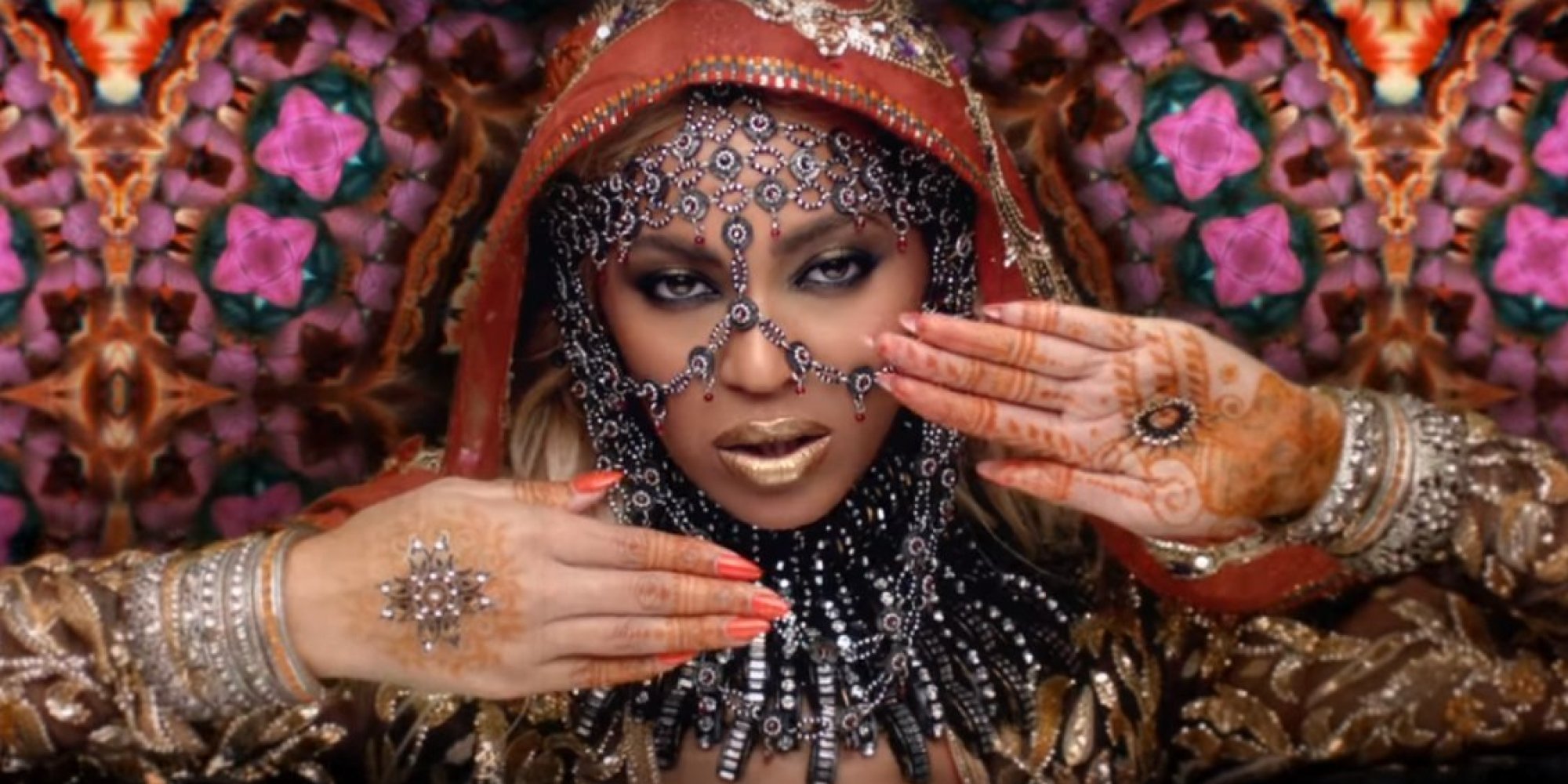Cultural appropriation or appreciation?

Beyonce’s appearance in a recent music video for the Coldplay song “Hymn For the Weekend,” which is set in India, has been criticized for appropriating cultural practices native to the area. (YouTube screen shot)
By Daily Bruin Staff
March 7, 2016 5:48 p.m.
I come from Milford, Connecticut. If you’ve heard of Connecticut, then that’s good enough for me, considering half my friends don’t even know where it is on the map. The Indian population of my quaint New England town was small enough to classify me as a minority so there was never a large emphasis placed on or much attention given to my racial group. Considering that I was one of three Indians in my whole graduating class, coming to UCLA exposed me to different viewpoints and personalities.
As an outsider to the state and the city, I’ve noticed that cultural appropriation is a common topic of discussion here at UCLA. More specifically, there is debate over what does and doesn’t count as appropriation of South Asian culture. The line between the two has always been a bit blurry, but it’s necessary to acknowledge that there is a line and moreover, that there needs to be a balance between both sides.
Cultural appropriation, as I understand it, happens when certain aspects of a culture are adopted to one’s convenience without consideration of all the aspects of a culture as a whole. This concern is justified. Those who pick and choose parts of a culture that appeal to them while looking down on other aspects are being insensitive. Still, there are others that value and see beauty in all aspects of the culture. By shunning their appreciation out of fear that it is cultural appropriation, we are at risk of becoming oversensitive and paranoid about it.
Take, for example, the bindi. The bindi holds a great deal of cultural significance and value for Indians. And sure, I can attest to the fact that the newly found appreciation for bindis amongst non-Indians wasn’t around when I was little. In fact, I remember my mom placing a bindi on my forehead before school in the morning, and it “somehow falling off” by the time I got home, because I was teased and subject to jokes by my classmates for wearing it. So I can understand why it might anger some people that the bindi is now a fashion statement. The same goes for henna – it most definitely was not a fad like it is now.
However, it’s also important to recognize how our society has developed to be more culturally aware in recent years. There is an equal amount of cultural oppression as there is an emphasis on a worldly perspective. We’re now more aware of other cultures, and of their customs and traditions. So yes, we can be angry about the discrimination that we faced because of these cultural symbols. But it’s also important to recognize that it’s OK for people to appreciate them now. It’s okay for a non-Indian to wear a bindi or apply henna; as long as they are aware of the fact that it is a culturally significant tradition, I don’t see why it’s necessary to be angry about it and be so quick to label it as cultural appropriation.
Read more: UCLA’s lack of cultural sensitivity led to ‘Kanye Western’ themed raid
My point is not that cultural appropriation isn’t present in our world today or that it isn’t a problem. It definitely is. But it’s time we took a second to stop and think before we throw that label on a particular situation. Appreciation for a culture is commonplace in our rapidly globalizing world as people of different cultures and customs interact with one another. However, this appreciation is also commonly mistaken for appropriation. Overusing this term can very well obliterate the bridge between all our different cultures and devalue the word itself.
As people of different cultures and customs interact with each other, our inclination to divide ourselves and label certain things as “ours” and “theirs” makes us easily forget one important point. We’re all just one human culture, a product of an infinite spectrum of ideas and traditions constantly bouncing each other.


